18 Spanish productions at the 69th edition of the Valladolid International Film Week
- Paz Vega’s Rita and Carolina África’s Verano en diciembre will be presented out of competition, while Adrián Orr’s To Our Friends will compete in the Meeting Point section
- Time of History will offer six titles, five of them world premieres: Resistance Box, by Concha Barquero and Alejandro Alvarado; The Drunkmen’s Marseillaise, by Pablo Gil Rituerto; My Brother Ali, by Paula Palacios; and Turismo de guerra, by Kikol Grau, as well as La hija del volcán, by Jenifer de la Rosa, and Waldo, by Charlie Arnáiz and Alberto Ortega, which are competing for the Doc España award
- Alchemies will feature Cyborg Generation, by Miguel Morillo Vega; The Rim, by Alberto Gracia, and The Human Hibernation, by Anna Cornudella, while Memory & Utopia will show the Spanish production Portabella Constellation, by the Italian Claudio Zulian
The Valladolid International Film Week is reinforcing its commitment to new Spanish independent and auteur cinema in this 69th edition, which will bring together a broad participation in all its competitive sections, offering 18 productions committed to providing new approaches to themes and styles, as well as filmmakers with solid careers and proven originality, along with promising debuts that point to new methods of storytelling in the audiovisual.
Among the firsts, Javier Rebollo, Mar Coll, Carlos Marques-Marcet, Kikol Grau, Paula Palacios and Alberto Gracia. Regarding the newcomers, the festival will be featuring Carolina África, Cristina Consuegra and Alejandro Alvarado, Anna Cornudella, Jenifer de la Rosa, Pablo Gil Rituerto, Elena Manrique, Miguel Morillo, Marta Nieto and Paz Vega. The selection of titles reflects not only the diversity of filmmaking in our country, but also highlights the growing presence of women in all areas, not only in directing and producing, but also in the thematic proposals.
The Official Selection line-up ranges all the way from two established authors with a marked personality, such as Javier Rebollo with Close to the Sultan, and Mar Coll with Salve María, to the dazzling fiction debuts of two women with an outstanding career in other fields, such as the actress Marta Nieto with Becoming Ana, and the producer and screenwriter Elena Manrique with The Party’s Over. These titles, together with the announced opening film by Carlos Marques-Marcet, They Will Be Dust, will compete for the Golden Spike. Alongside these titles and out of competition, the directorial debuts of two actresses with brilliant careers in film and theatre, respectively, will be programmed: Paz Vega, with Rita, and Carolina África, with Verano en diciembre.

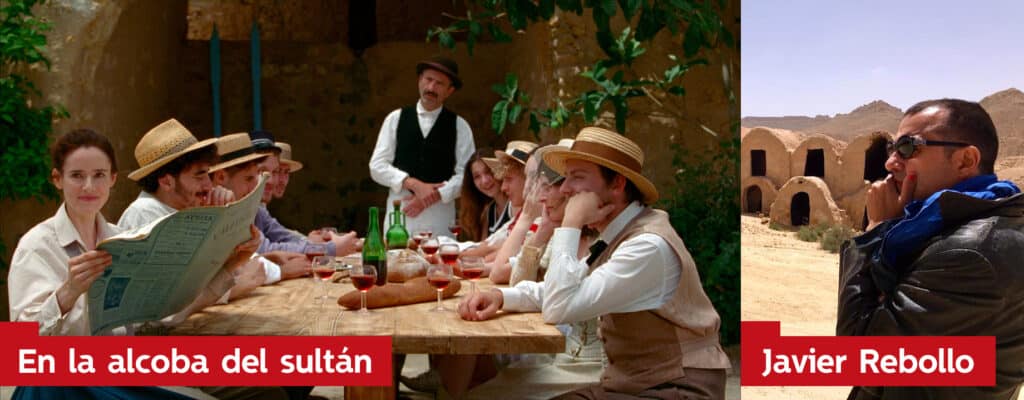
The adventure, love and ghost film Close to the Sultan, shot in 35 mm as a tribute to the birth of cinema, marks Javier Rebollo‘s return to directing after eleven years, with an international cast headed by Pilar López de Ayala. The film is freely inspired by the life of Gabriel Veyre, the Lumière brothers’ camera operator, to poetically talk about cinema, science and art, evoking the musicality and physical comedy of silent films.
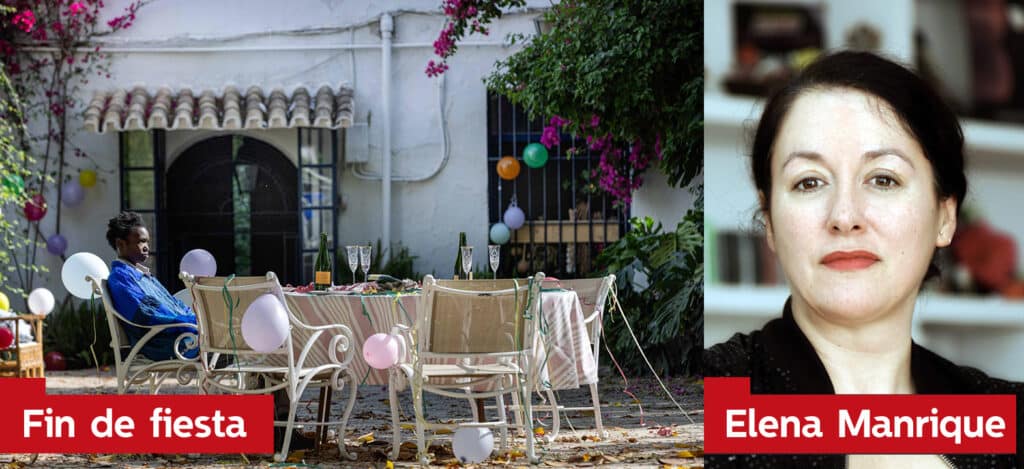
Elena Manrique, who has an exceptional career spanning several decades in multiple facets of all areas of film and television, gets behind the camera in The Party’s Over, a comedy featuring a sharp commentary on the twenty-first century relations of power and dependence between the different social classes through the story of an African emigrant hiding in the shed of an Andalusian manor house, from which he observes the dynamics between the lady of the house and her young assistant. One day he is discovered by the madam, and some time later by the maid, but they both hide it from each other. Edith Martínez-Val, Sonia Barba and Beatriz Arjona star in this Andalusian gothic tale that reflects on survival.
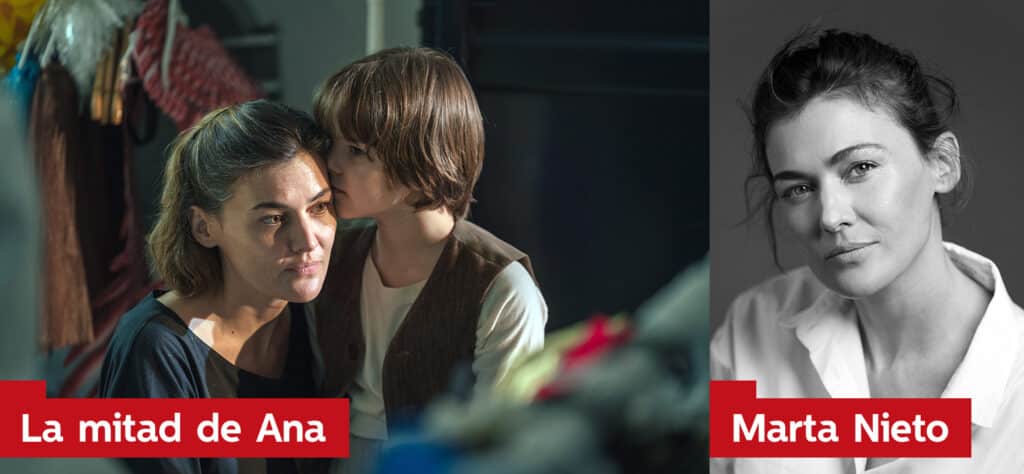
Becoming Ana – world premiere at SEMINCI – delicately deals with the identity struggles of a woman through the crisis of her daughter, Son, who confesses to her mother that she does not feel like a girl, but like a boy. Confused and blocked, Ana decides to stop in order to observe and understand her son and, in the same way, to understand herself. Marta Nieto elaborates on the story already outlined in the short film Son, which she also wrote and directed. The actress directs and stars alongside Nahuel Pérez Biscayart (120 BPM, Persian Lessons) in this drama about the awakening of an adult woman through her daughter’s crisis.
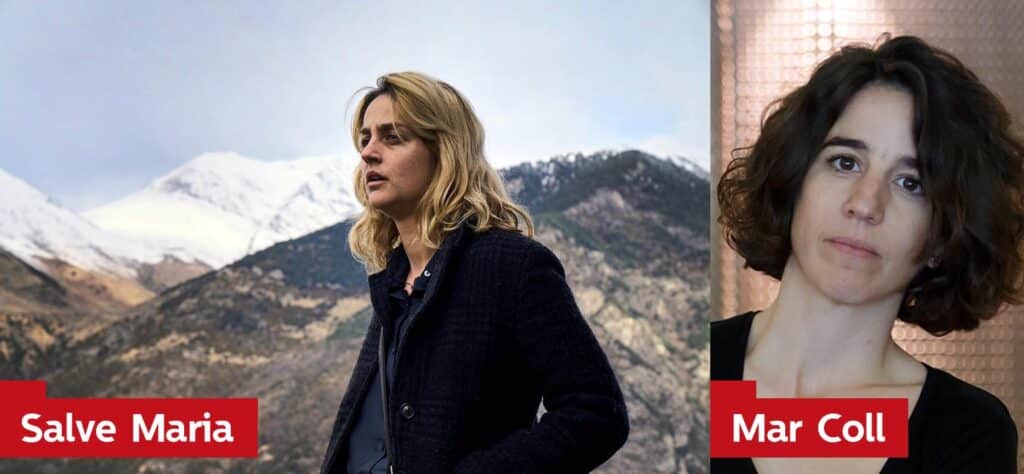
Salve María, inspired by the novel ‘Las madres no’ by the Basque writer Katixa Agirre, addresses the radical experience of motherhood in an unsettling drama touched with thriller elements, which had its world premiere at the recently held Locarno Festival, achieving a Special Mention from the Jury and the third prize from the Young Jury. The film marks Mar Coll‘s return to SEMINCI, having opened the 58th edition with her previous feature film, We All Want What’s Best for Her, and presents an uncompromising story about the ambivalent feelings and emotions surrounding maternity, starring Laura Weissmahr and Oriol Pla.

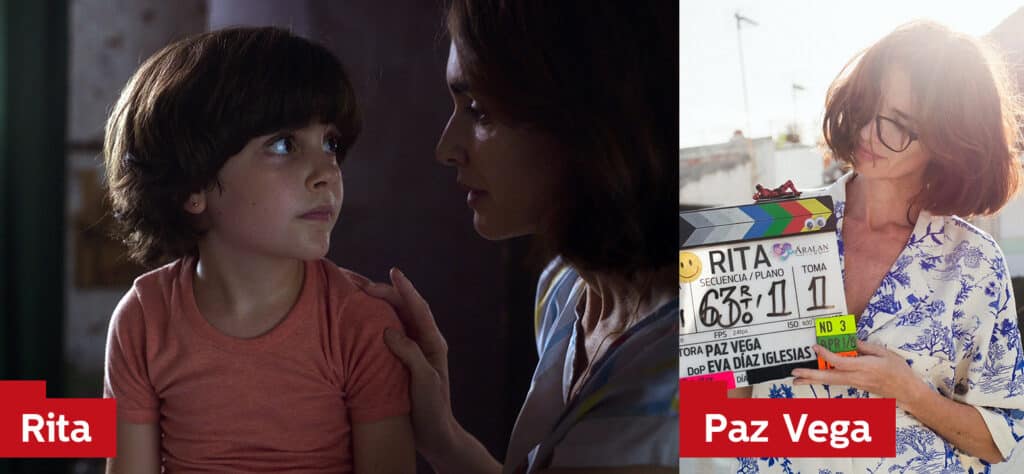
Paz Vega makes her debut behind the camera with Rita, a story that examines her childhood in her native Seville from the perspective of a girl brought up in a simple working-class family during a hot summer in which the whole country is in turmoil with the 1984 European Football Championship. Rita dreams of going to the beach, but at home her father’s word is rule, always. For the first time, Rita begins to wonder why things are the way they are. She also begins to realise that her home is becoming increasingly less safe, especially for her mother. Double Goya Award winner Roberto Álamo co-stars alongside Paz Vega.
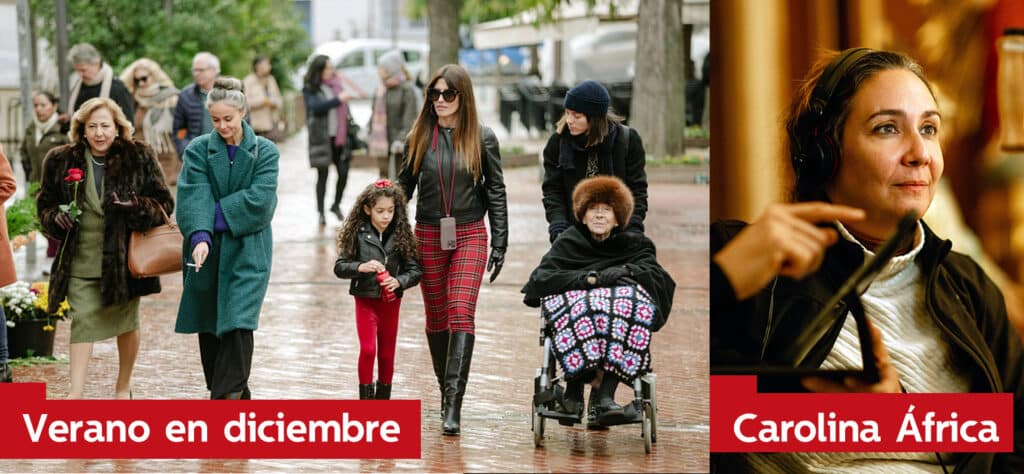
Verano en diciembre, Carolina África‘s first feature film, is an adaptation for the screen of her own play of eponymous title, which premiered in 2014 with an extraordinary cast that includes Carmen Machi, Bárbara Lennie, Victoria Luengo, Irene Escolar, Beatriz Grimaldos, Lola Cordón, Antonio Resines, Silvia Marsó and Nacho Fresneda. This is a comedy that invites us to overcome family crises through humour by portraying a very Spanish home, full of irony, noise, arguments, jokes, forgiveness, good intentions, laughter and disappointment. The film will have its world premiere at the RTVE Gala.
The Spanish participation in the Official Selection also stands out for the extraordinary creative display of the new generation of female producers involved in all the films programmed: the winner of the Golden Bear for Alcarràs, María Zamora (Summer 1993, Creatura, The Rye Horn), winner of the National Cinematography Award 2024, is presenting no less than two feature films: Salve María and Becoming Ana; Sandra Hermida (The Orphanage, The Impossible, Society of the Snow) presenting The Party’s Over; the Argentinian Eugenia Mumenthaler (winner of the Pardo de Oro for Back to Stay) bringing They Will Be Dust; Nathalie Trafford (Lèa, The Sugar Curtain, Machuca) with Close to the Sultan; Marta Velasco (Second Prize, Out in the Open, Quién te cantará) showcasing Rita, and Maribel Muñoz (No, I Don’t Want To), traditionally linked to distribution.

To Our Friends, in Meeting Point

Meeting Point programmes To Our Friends, in which Adrián Orr (Niñato) narrates the metamorphosis of the actress Sara Toledo, who transitions from adolescence to maturity before our eyes. Sara, a second-generation migrant, is a neighbourhood girl with artistic interests. As she begins her acting studies, new social realities open up before her. Getting into a spiral of love and parties, she finds herself torn between the two worlds. Adrián Orr has collaborated with the protagonists, filming their lives over several years, to show how Sara builds her identity while debating between being faithful to her original environment and surrendering to the world she is entering as she becomes an adult.
The nominees for the Pilar Miró Prize, awarded from this edition onwards to the Best New Spanish Director, are Elena Manrique (The Party’s Over), Marta Nieto (La mitad de Ana), Adrián Orr (To Our Friends), Pablo Gil Rituerto (The Drunkmen’s Marseillaise), Concha Barquero with Alejandro Alvarado (Resistance Box), Miguel Morillo Vega (Generación Cyborg) and Anna Cornudella (The Human Hibernation).

Time of History: six titles and five world premieres

Concha Barquero and Alejandro Alvarado explore in Resistance Box the unfinished career of the Andalusian filmmaker Fernando Ruiz Vergara, who was only able to direct one documentary, Rocío, heartbreaking and fascinating, cursed after its judicial censorship in the early years of democracy in Spain. After his artistic ‘murder’, Ruiz Vergara was unable to complete any more work. He passed away in 2011, leaving dozens of uncompleted works that remained dormant in imagination and yearning. The directors, fabulate with those dreamed projects to bring them to the cinema from the present, as a gesture of resistance.
Five of the Spanish films in Time of History will be world premieres. Three of the selected films – Resistance Box, The Drunkmen’s Marseillaise and Turismo de guerra – address the issue of Historical Memory from points of view never before seen in Spanish cinema.
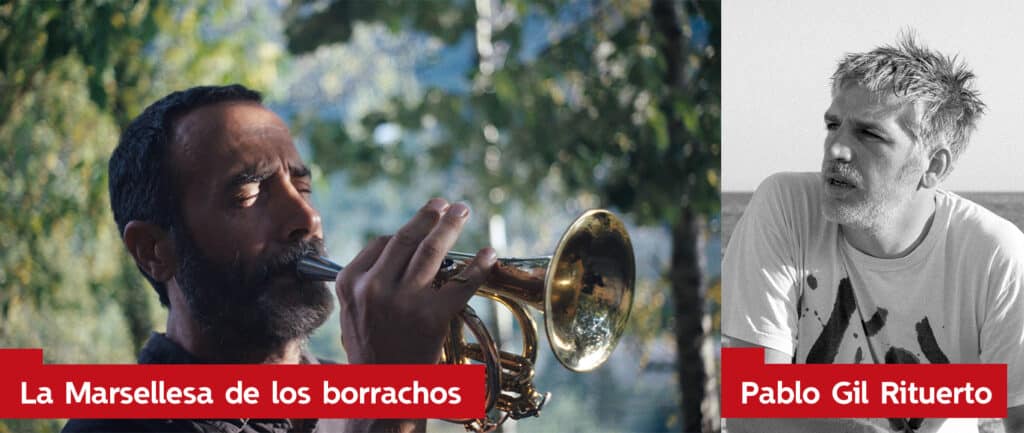
In 1961, a clandestine trip took place through the roads and villages of Spain by members of the group Cantacronache, formed in Turin and with which some prominent intellectuals (Italo Calvino and Umberto Eco) collaborated at the time. Its aim was to compile popular songs of the resistance and bring them out of Spain, a country that at the time was closed in on itself. The Drunkmen’s Marseillaise, by Pablo Gil Rituerto, follows in their footsteps, updating their journey through contemporary Spain. Seen from the prism of oral memory and the sound archives recorded in 1961, the two journeys dialogue, forming an emotional and political geography of a territory through the songs -reinterpreted by musicians such as Nacho Vegas, María Arnal, Amorante and Labregos do tempo dos Sputniks-, the writings and photographs of the period, guided by 92-year-old Emilio Jona, the last living member of that group.
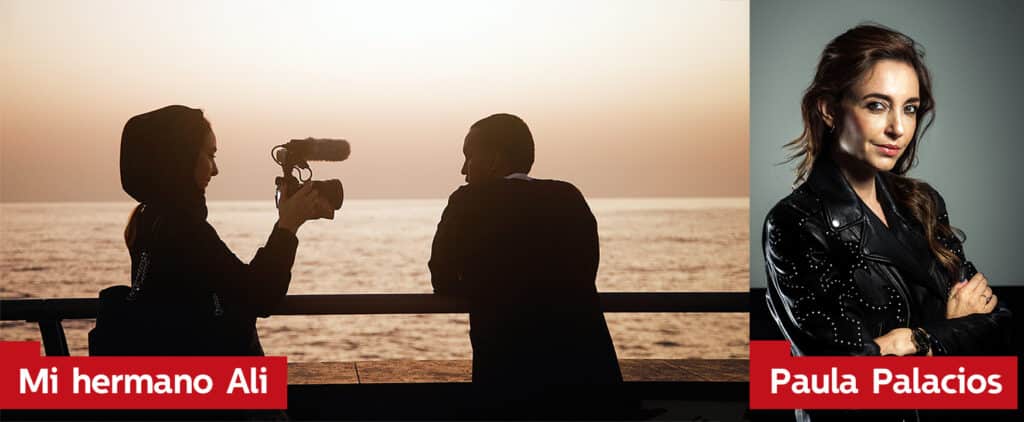
Paula Palacios (Cartas mojadas) has spent twelve years completing My Brother Ali, her eagerly awaited new film. Paula Palacios has followed with her camera during this period the tortuous path of Ali, a mischievous and endearing young man whom the director met at the age of 14 in a prison in Ukraine, where the boy arrived fleeing the war in Somalia. Over the years, the director has not only followed Ali with her camera on his odyssey through Ukraine, the United States, Qatar, Saudi Arabia and Spain, but has actively helped him to resettle and rebuild his life. The result is an unprecedented and deeply humane film that delves into the complexities of the global refugee crisis and our responsibility as individuals and as a society.
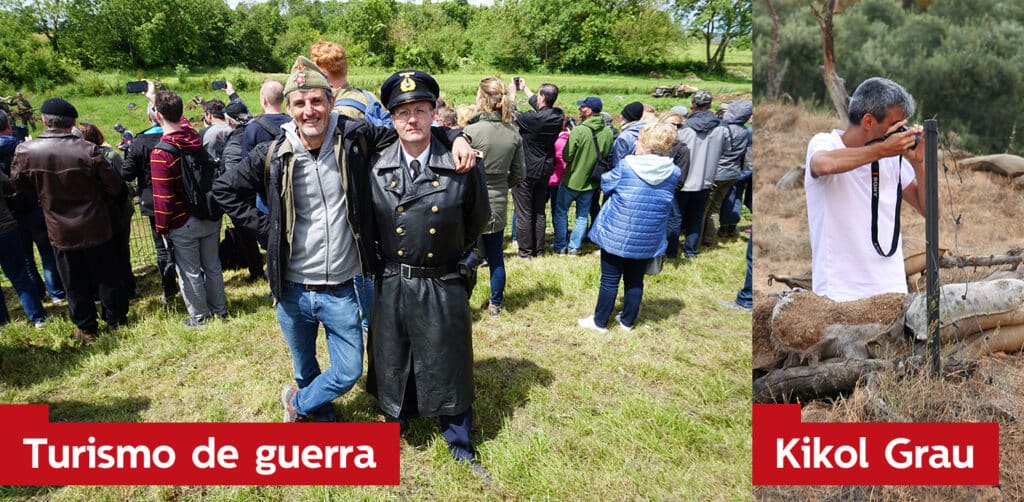
Turismo de guerra, a world premiere at SEMINCI, offers the irony and humour of director Kikol Grau, a punk filmmaker with a long career under his belt, who delves into his role as a historian redefining the official discourse on Spain’s recent past through a journey around places of historical memory, in order to reflect on the extent to which the cultivation of historical memory in specific places ends up fostering a tourist industry that contradicts its own spirit.

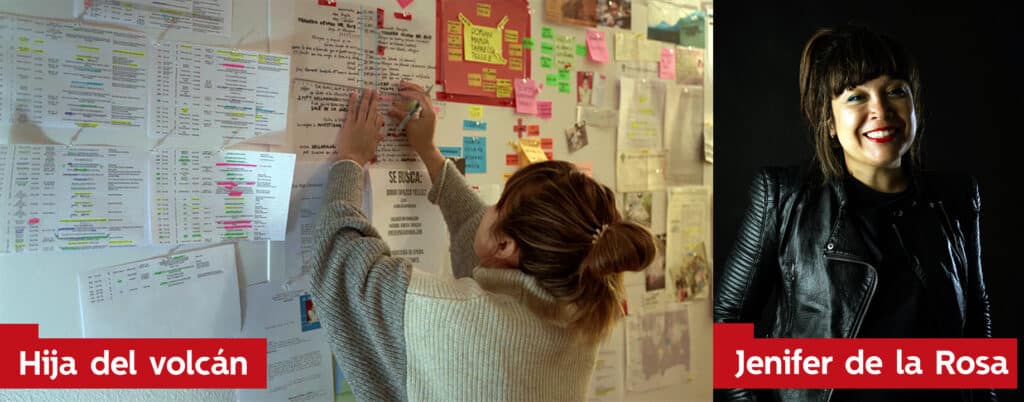
In La hija del volcán, debutant Jenifer de la Rosa, shortlisted to receive the award DOC. España, takes a look at her roots, tied to the tragic eruption of the Nevado del Ruiz volcano in Colombia in 1985, which claimed the lives of more than 23,000 people. De la Rosa, who was only a week old, survived and was adopted by a Spanish family from Valladolid, embarks on a search to discover her origins, considering the possibility that her mother is still alive, in order to show the world the circumstances that accompany the diaspora of adopted people around the world.
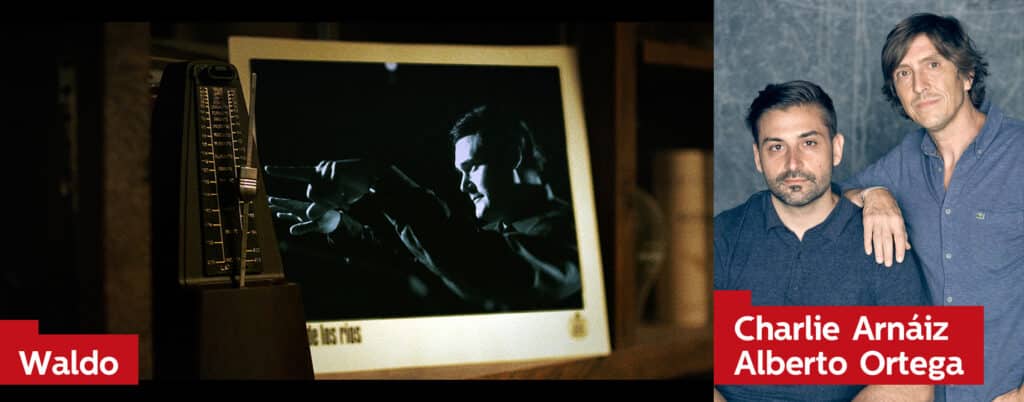
Waldo explores the tormented figure of Waldo de los Ríos, an undisputed figure of Spanish and world music in the 60s and 70s, author of the famous version of Miguel Ríos’ A Song of Joy, also of well-known TV theme tunes and big hits by artists such as Jeanette, Karina and Raphael. The film reveals a life of fame, luxury, passion, homophobia, dictatorship, esotericism, depression, loneliness, an enigmatic suicide and oblivion, and tries to understand how one of the greatest composers in universal history turned his own life into a requiem. Through numerous testimonies – including those of his widow, Isabel Pisano – and revealing unpublished material that the musician himself recorded in his obsession not to be forgotten, the film reveals Waldo’s darkest desires, lovers, family relationships, fears and achievements.

Alchemies: unbiased relationships with nature, technology and sex
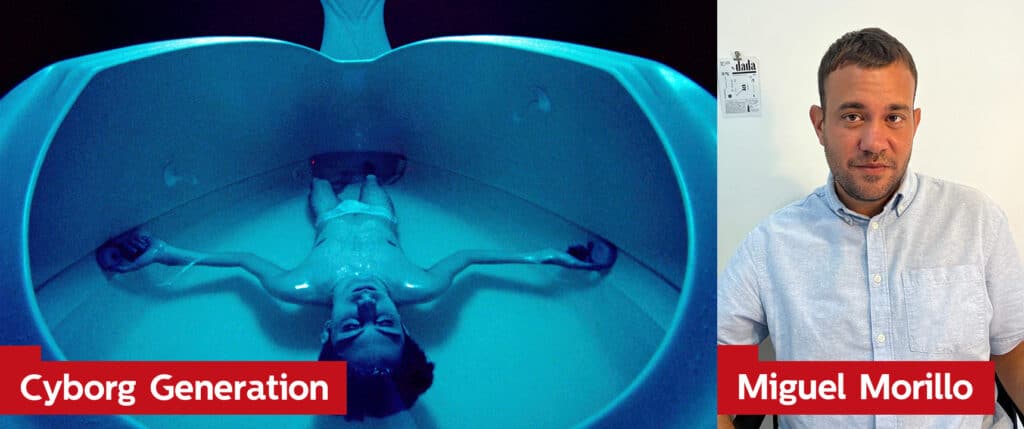
Miguel Morillo Vega has spent five years investigating in his first feature film, Cyborg Generation, the transition from human to cyborg of Kai Landre, a young 18-year-old musician who gets a cybernetic organ to acquire a new sense that allows him to perceive sounds emitted from space to earth, which he translates into musical notes and uses them to compose, a five-year effort that enables the viewer to witness this unique phenomenon and understand this organic and unprejudiced relationship with technology.
Alchimies, dedicated to works that propose innovations in cinematographic language, will programme three titles that coincide in their unbiased look at issues such as nature, technology and sex: The Human Hibernation, by Anna Cornudella; Cyborg Generation, by Miguel Morillo, and ‘The Rim, by Alberto Gracia.
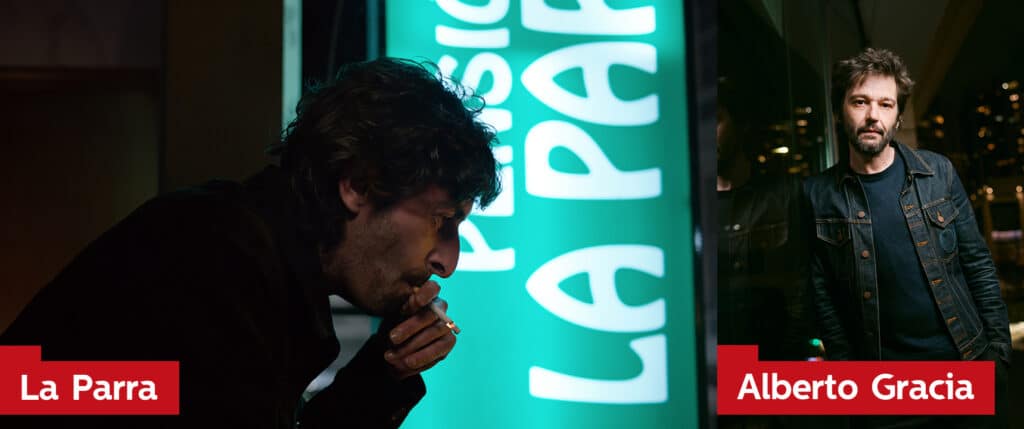
Alberto Gracia explores in his third feature film, The Rim – premiered in the Tiger Section of the International Film Festival Rotterdam – issues such as the trivialisation of the audiovisual image, human dignity and historical memory. Gracia, one of the main figures of the Novo Cine Galego, takes as his starting point the story of Damián, a middle-aged man who lives a precarious life in Madrid and who, upon learning about the death of his father, returns after twenty years to his hometown, Ferrol, which has become an almighty ruin, where he stays in a legendary hostel that gives its name to the film and through which eccentric characters has passed for the last 55 years.
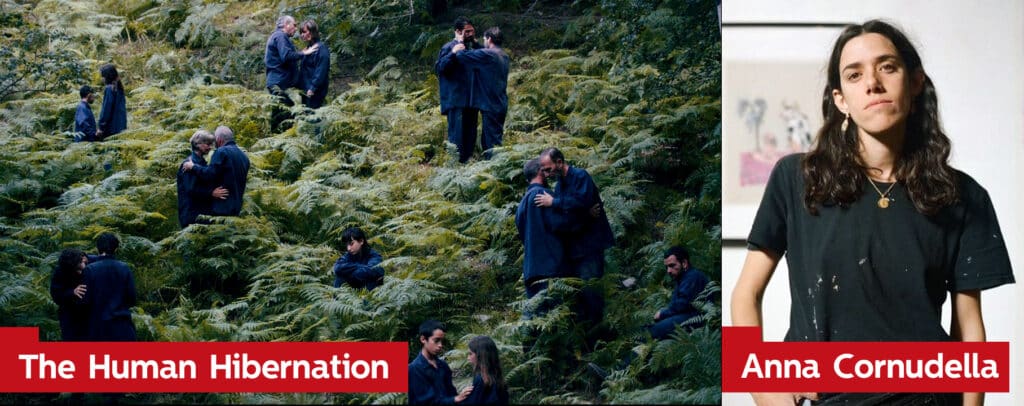
The Human Hibernation, a fascinating debut feature by Anna Cornudella, winner of the Fipresci Award in the Forum section of the Berlinale, presents a dystopian vision in which human beings hibernate during the coldest months of the year and live in a reality where they are not the centre of the world, leading the viewer to reflect on the human condition, their relationship with the planet and the other humans and living beings that inhabit it.

Memory & Utopia: the genius of Pere Portabella
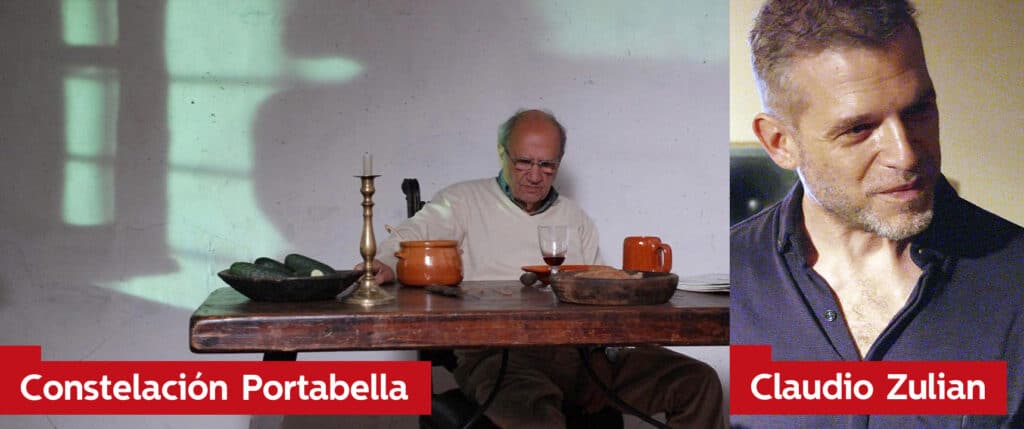
Portabella Constellation, directed by the Italian Claudio Zulian, takes a first look at the universe of filmmaker Pere Portabella, author of titles such as Vampir-Cuadecuc, El sopar and Informe general. Premiered in the Venice Classics section at the Venice Film Festival, the film explores the vast oeuvre of a unique filmmaker and one of the driving forces behind the Barcelona School, which covers several decades of Spanish history, from Franco’s regime to the present day, including the Transition. To do so, the film brings together the testimonies of the filmmaker and his extensive work, as well as those of figures from the cultural avant-garde and film historians such as Joan Brossa, Carles Santos, Luis E. Parés and Esteve Riambau.
The participation of Spanish cinema in the 69th edition of SEMINCI will be more extensive, with the addition of several feature films to the rest of the sections, as well as short films in competition. The remaining titles will be announced soon.



























![Logo Foro Cultural de Austria Madrid[1]](https://www.seminci.com/wp-content/uploads/2024/09/Logo-Foro-Cultural-de-Austria-Madrid1-300x76.jpg)








